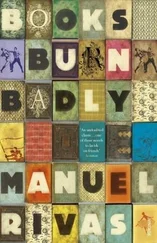Years later, at school in Castro de Elviña, the teacher asked us one day what we wanted to be when we were older. He didn’t follow a pedagogy of participation, so we remained cautiously silent and waited to see what would happen. Where was the question aimed? Why did he want to know what we wanted to be? What was it he really wanted to hear? And then, in that mute silence, like a festive whoop, came the voice of someone we called Red of the Wood, who shouted from the back, ‘Emigrants!’ The teacher was taken aback and fell into a mournful silence. The external wall had a large lattice window. Whenever a pane fell out or broke, it took a long time to be replaced. So there were always holes out to the open, through which the wind whistled or the rain drove. One might say the holes used these moments of bewilderment to make themselves heard. The teacher seemed to become aware of them, the gaps in the wall, the damp stains, the peering in of the elements. He who had just been talking to us about the time when Spain was a huge empire ‘where the sun never set’. How much he — and we — liked that phrase! Solar precision brought history closer. We were in a remote place, in a battered building, the sacks of powdered milk sent by the Americans piled up in a corner, but the sun was there as well, not setting, at least for the moment, and the teacher was kind enough to implicate us all in a great, imperial epic. We had dominated the world. We had carried the cross the world over. We even used to go out collecting money in order to save the souls of Chinese children. But now the teacher had asked what we wanted to be when we were older and this sincere voice, coming from the back of the class, had the effect of a fallen pane that smashes on the ground. The children of the Empire dreamed of becoming emigrants.
That suitcase, the one in the strange nursery, must have had at least enough room for two emigrant children. So one day they sat a classmate down next to me. We never spoke. We never even looked at each other. I just asked for permission to get up and go to the toilet. I went down the corridor on my own. There were framed photographs of women on the walls. Not the teachers. My attention was drawn to the hairstyles, the clothes, the long black gloves of one, another in what looked like a man’s suit with a smoking cigarette holder between her fingers. Above all, their look. They were the ones who looked out or stopped looking. I pushed open a door. It happened to be to the kitchen. In the middle, a large table with a green and white checkered tablecloth. On top of the table, like an effigy, sat a cat. An unbelievable cat, unlike all the cats I’d seen up until that moment, with long, immaculate white hair and a glowing aura, a celestial cat with a bow and a little bell around its neck. The cat glanced at me, over its shoulder, with indifference. And it was then I realised that I’d set foot in America.
3. The Clandestine Children’s Staircase
IN THE STRANGE nursery, sitting on the suitcase one day, I heard María’s voice.
It was a voice that came from on high. So I lifted my head and saw her standing on the table, above all the noise, with a spelling book in her hand. It really was my sister. But the voice was new: it had been born that very day. María was a little more than a year older than me. I didn’t even have a spelling book. I went to school with an empty briefcase, which I wouldn’t let go for anything in the world. And now, there she was. Reading aloud, in the middle of an astonished silence. Without making any mistakes, without stuttering. Reading syllables, whole sentences. She was capable of pronouncing the divine words ‘ mi mamá me ama, mi mama me mima ’. And ‘ uvas iglesia bicicleta ’. She turned page after page, and the teacher asked her excitedly to carry on, carry on, wanting to see whether what was happening was really true or just a superstition. I already knew my sister had a special relationship with words. She was a verbivore. She went out gathering words and carried them home. You can tell because of the separation in her teeth, in early photos, that her mouth was full of words. It must have had something to do with our family. My mother was a verbivore as well. She talked to herself in a way that bewitched us, without realising, without even knowing we were listening. In the house or houses we lived in, there were no books at that time. The first poems I heard were in my mother’s solitary mouth, poems she recited to herself or to someone who kept her company in her imagination, even when she was washing or scrubbing. Whatever it was, it was something strange, captivating, but also disturbing. It was the mouth of literature, unannounced. This being nourished by the sound of words was a family secret, however. I didn’t know María had learned how to read from one day to the next, but nor was I surprised. There were herbivores and carnivores. And then there were those who fed on words. There were plenty of that species in my family. One of the first I discovered was my uncle Francisco, my mother’s brother, who was a barber. For us children, a haircut was a kind of torture. Our heads were shaved without further ado. As a precaution against lice, we were given a convict haircut. In nature, it would seem there is a desire for style, which is revealed, for example, in symmetry. In the way a sea urchin grows or the degree at which a fig tree bends on the coast. In the flight of a flock of starlings. Or the monstrous threat posed to predators by the drawings on the wings of certain butterflies. These are observations and enchantments, marks in the history of the look. Detecting humiliation also forms part of the primitive equipment of some species.
It was to see oneself in the mirror and feel humiliated, as when one suffers an inexplicable punishment. The barber’s chair, where adults sat so contented and trusting, a magazine or newspaper open in their hands, more or less indifferent to the artistic process being performed on their heads, was an executioner’s chair for us little ones. Our locks fell to the floor, the wild beast retreated. The head was humiliated. But that wasn’t the feeling with which one left Uncle Francisco’s barber’s shop. Not for stylistic reasons. He wasn’t heterodox when it came to the dominant haircut. The scissors and mowing machine advanced implacably over the skull’s lawn. But what happened to one’s head in that place was secondary. The important thing was the discourse. Uncle Francisco’s incessant stream of thought. In reality, a snip-snap of the scissors on high, preceded by a flourish in the air, was not part of the haircut, but the start of a new paragraph.
When long hair became fashionable, we teenagers gradually abandoned him. In the same building as the barber’s shop, he lent out a room for a rock band to practise. Uncle Francisco’s monologues, of which he had a different one for each client, alternated with this music that had ushered in a fashion he considered disastrous. But he was a narrator above all else, and this situation enabled him to renew his characters and themes. Unlike the haircut, which continued unchanged, the storyteller moved with the times. Irony was his trademark. What kept him on the front line.

On the right, Uncle Francisco and, sitting down, Aunt Manuela
‘Humour, gentlemen, is the pauper’s second sauce.’
‘And the first one?’
‘Hunger. That’s the best sauce for eating.’
Only once, as far as he could tell, did Uncle Francisco shut his mouth in the middle of a story and find himself unable to continue. In the story, there was a moment’s terror, when some Falangists broke into the house at night to take away his father, my grandfather from Corpo Santo, with the intention of killing him. At this point, the old man he was shaving, a complete stranger, blurted out:
Читать дальше













